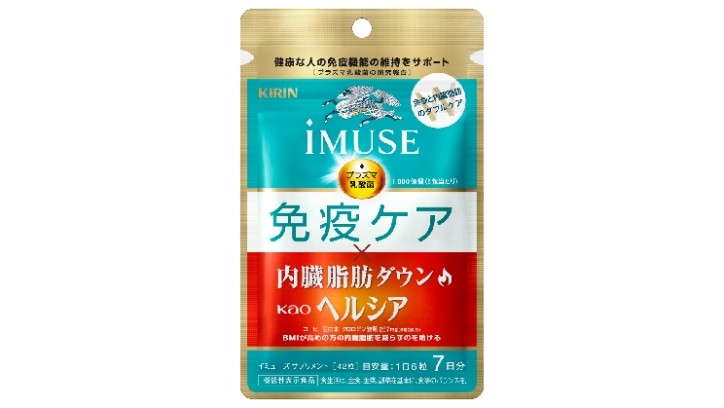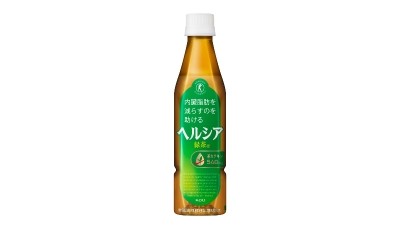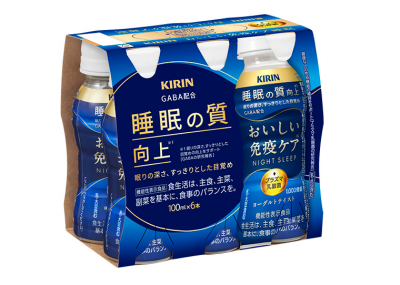Kirin and Kao launch dual-function supplement for immune support and visceral fat reduction on the back of joint research

The new product, named Kirin iMUSE Immune Care and Healthya Visceral Fat Down, was born from a joint research project between Kirin and Kao.
With the launch of this supplement on November 28 and Healthya’s Green Tea Plus Immunity Care on December 2, the number of Foods with Function Claims (FFC) that Kirin has — together with partner firms — total 57 products.
“Kirin has been actively expanding its line-up of functional food products with immunity claims. Since obesity and immunity are important and familiar concerns for Japanese people, we believe there is a strong need for consumers to address both issues simultaneously and easily.
“This product targets people who want to maintain their health and well-being by supporting their immunity, people who are obese with a high BMI, and people who are starting to take health-improving measures,” Sumiko Oi from Kirin’s Corporate Communications department told NutraIngredients-Asia.
In addition, Oi said that the firm hopes to help consumers who are concerned about visceral fat, as well as those who have to attend many events during the year-end holidays, manage their health on a daily basis.
The recommended intake of six capsules per day contain 100bn Lactococcus lactis strain Plasma (LC-Plasma) and 267mg of chlorogenic acids (CGAs) from coffee beans.
LC-Plasma is known to act on plasmacytoid dendritic cells (pDC) to boost immune function in healthy individuals, while CGA is a class of phenolic acids found abundantly in coffee that have been reported to reduce visceral fat in people with a high BMI.
“We have been conducting research in the field of immunology for over 35 years. By combining our immunological research with Kao’s knowledge of fat metabolism, it will enable both companies to have a broader approach in addressing health needs related to visceral fat and immunity. It could also further growth of the iMUSE and Healthya brands.”
Kirin iMUSE Immune Care and Healthya Visceral Fat Down are sold at drugstores nationwide and via Kirin Kyowa Hakko Bio mail order. There are currently no plans to export the product.
Kao’s research on lipid metabolism
Fat accumulation is often the result of imbalances between food intake and physical activity.
In particular, visceral fat is caused by eating more calories than they are burned, and a lack of physical activity. Hidden inside the body (on and round vital organs), it can lead to medical conditions such as high blood pressure, cardiovascular disease, and diabetes.
According to Kirin, visceral fat is a major health challenge for the Japanese, and improving eating habits and developing exercise routines are considered essential measures.
Kao has been studying lipid metabolism since the 1990s, and has published numerous papers and presented at many conferences on this topic.
Its discoveries include two polyphenols, tea catechins in green tea and CGAs in coffee beans, which are reportedly effective in reducing visceral fat.
In 2003, Kao launched Healthya Green Tea, the first tea product with functional health claims that got approved as a Food for Specified Health Uses (FOSHU) in Japan. In 2019, it introduced another version that claims to decrease visceral fat.
For Kirin iMUSE Immune Care and Healthya Visceral Fat Down, the CGAs were selected based on Kao’s expertise in this area.
Powerful partnership
The Wakayama Health Promotion Study is a cohort study led by Wakayama Medical University since 2011 to identify genetic and environmental factors involved in the development of various diseases among local residents in the Wakayama Prefecture.
There has been increasing attention on the association between obesity and immunity in recent years, with reports stating that obesity could lead to more severe viral infections.
To investigate the relationship between visceral fat and pDC activity, Kirin and Kao joined the Wakayama study in November 2022.
Some 223 Wakayama residents aged between 50 and 55 underwent specific check-ups, where Kao obtained data on lifestyle habits and visceral fat area, and Kirin measured pDC activity in the blood.
These data were shared, and jointly studied and analysed by the two teams.
The findings indicated that participants with high visceral fat area and low pDC activity had a higher incidence of novel coronavirus infection than those with low visceral fat area and high pDC activity, with a 20-fold higher odds ratio. Similar results were observed with influenza.
“For the first time in the world, it was found that people with high visceral fat area values had low pDC activity. It was also suggested that those with high visceral fat area and low pDC activity are particularly susceptible to novel coronavirus infection and influenza. Thus, it is important to address both visceral fat mass and immune function,” the companies wrote in a statement that revealed the findings.
Oi added that although there is “no definite information” on other joint studies in the future, both Kirin and Kao are “positively discussing” the direction to conduct further fundamental research utilising each other’s strengths.


















